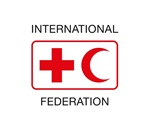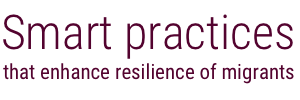Returning migrants that have suffered a serious injury or illness during the journey need special assistance to first and foremost meet their physical requirements and then meet other needs.
The ICRC, in collaboration with the Mexican and Central American National Societies, provides free assistance to migrants (in transit or returned) who have suffered major illnesses or injuries during their journey (including amputations, spinal cord injuries, etc.). They offer the following services: (1) donation of prostheses (before physical rehabilitation), (2) osteosynthesis materials, wheelchairs and crutches, (3) ambulance transfers, (4) referral to rehabilitation and medical care centres in Mexico and Central America, and (5) reestablishment of family links when necessary.
In Honduras, the National Committee to Support Returning Migrants with Disabilities (CONAMIREDIS), with technical and financial support from the ICRC, works directly with returning migrants who have disabilities. It offers: (1) psychological assistance through support groups of people with similar experiences; (2) access to training and vocational education (e.g., how to design a business plan); and (3) seed capital to implement business plans through an agreement with the Chamber of Commerce. (Approximately 40 businesses plans were financed in 2015.) In addition, CONAMIREDIS performs conferences and lectures in schools and other institutions to share its experience of migration and raise awareness of the risks associated with trying to enter the United States irregularly. The ICRC supports CONAMIREDIS with both technical and financial support.
ICRC had provided prostheses to 61 people by 2014.
Design. [P1] Focuses on the vulnerability of migrants who cannot afford the treatment costs of serious illnesses or injuries.
Implementation. [P6], [P7] Partnership between ICRC, National Societies and other actors.
Programme. [P8] Assists returning migrants.
- Financial resources for prostheses and other treatments (e.g., for spinal cord injuries, ulcers). (Lack of funds to treat).
- Linking with businesses to provide job opportunities for returned migrants with physical disabilities. (The project has reached out to many businesses but has not successfully reached agreements that provide job offers.)
- It is not enough to provide the prosthesis, follow-up and rehabilitation afterwards are essential to ensure proper use and full benefit to the migrant.
- A psychological support service is the most important, since most returned migrants feel they have failed. This feeling is often accentuated if migrants return with physical disabilities.
Smart practices
Smart practices report and database survey
About the report
People migrate in pursuit of a better life for themselves and their families. As described in the International Federation of Red Cross and Red Crescent Societies’ (IFRC) Policy on Migration, “migrants are persons who leave or flee their habitual residence to go to new places – usually abroad – to seek opportunities or safer and better prospects.
Read more
About the International Federation

